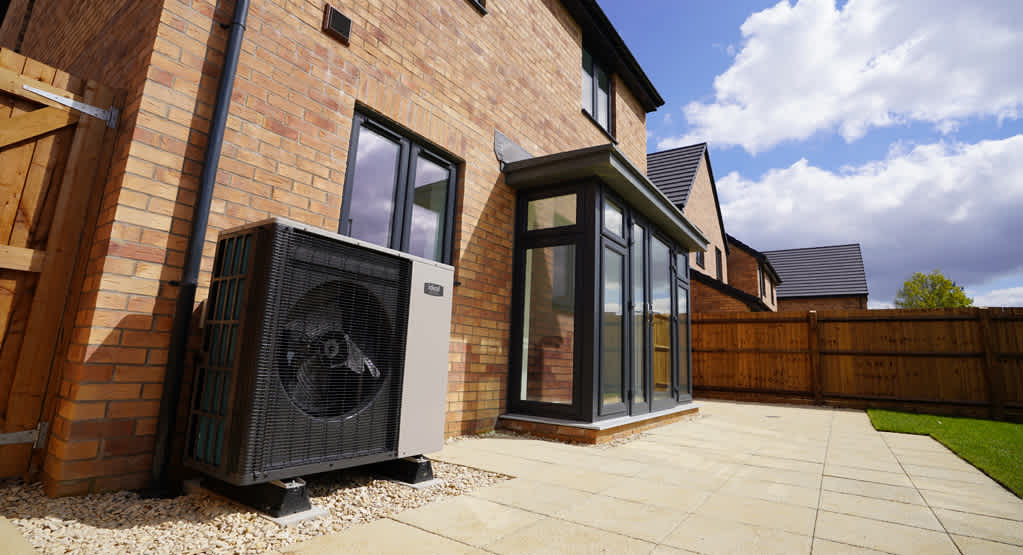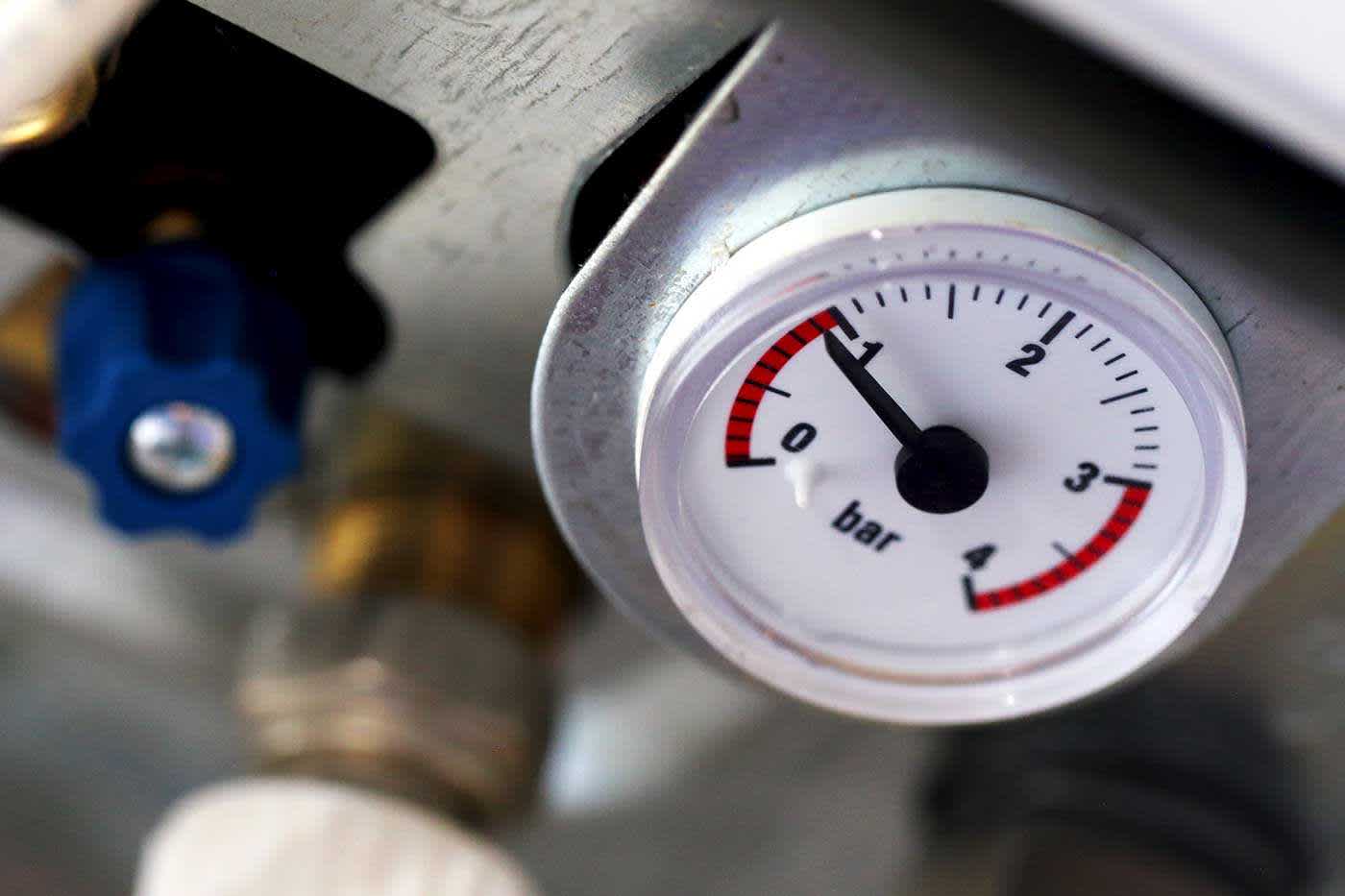
Should I get a heat pump? Your 2025 guide
With UK energy costs remaining a key concern and a growing desire for greener living, it's a question more homeowners are asking than ever before: “Should I install an air source heat pump?”
You’re not alone in considering this change. In 2023, data from energy installation standards organisation MCS showed the UK had its best year for heat pump installations ever, with over 3,000 being installed per month in the first six months of the year. That’s against the backdrop of the Government’s target for 600,000 to be installed annually by 2028.
But is a heat pump the right choice for you and your home, right now? As heating experts with over a century of British engineering experience, we're here to provide the clear, straightforward answers you need. This guide will help you understand the benefits of heat pumps, what makes a home suitable for one, and the different types available.
For a complete overview, you can always explore our expert heat pump guide.
First, what is an air source heat pump?
A heat pump takes air from outside of your home using a fan. This air then comes into contact with a refrigerant liquid with an incredibly low boiling point, meaning it can be heated by air that may not seem hot at all to us.
Once in gas form, the refrigerant is compressed to increase the energy and temperature even more. This energy is then transferred to the water that will flow around the heating system. Meanwhile, the refrigerant turns back into a liquid, and the process begins again.
It's a highly efficient, continuous process. To see it in more detail, check out our comprehensive guide on what a heat pump is and how it works.
How is a heat pump different from a gas boiler?
The fundamental difference between a heat pump and gas boiler lies in how they generate warmth. A traditional gas boiler creates heat by burning fossil fuels, which is effective but releases carbon emissions.
A heat pump doesn't create heat by burning anything. Instead, it moves existing heat from the outside into your home. This process is powered by electricity but is far more efficient, making it a greener, forward-thinking solution.
Our comparison guide on heat pumps and gas boilers can help you understand the differences in more detail.
Why install a heat pump? The key benefits
Deciding to install a heat pump comes with several valuable, long-term advantages for your home and finances.
Lowers your carbon footprint
Many people choose heat pumps for their environmental benefits. With a heat pump, you reduce your carbon footprint by switching from gas-based heating, and instead use electricity to extract the natural heat of the air around you.
This, and the fact that heat pumps are very efficient (400% versus around 90% in the case of conventional boilers), means they can shrink the carbon footprint of your home significantly.
Reduces cost thanks to Government grants
Recent increases to the Government’s £450 million pound Boiler Upgrade Scheme mean you can shave up to £7,500 off of the cost of your heat pump and installation. That’s provided your home isn’t a New Build or Social Housing, and has a valid energy performance certificate with no outstanding recommendations.
On top of all this, you’ll enjoy 0% VAT on installation, reducing the cost further. It’s fair to say that heat pumps are not just a phase!
Future-proofs your property
As the UK moves towards a more sustainable future, homes with efficient, low-carbon heating systems will become increasingly desirable. By installing a heat pump now, you are not only preparing for future regulations but also potentially increasing the value and appeal of your property if you decide to sell.
Common questions about installing a heat pump
It's natural to have questions about potential challenges. Let's address them directly to give you peace of mind.
Are heat pumps expensive to install?
The upfront cost is a key consideration. While the price can be higher than a boiler, the £7,500 Boiler Upgrade Scheme grant was designed specifically to make choosing a heat pump a much more affordable option for UK homeowners.
Will I need planning permission?
Installing certain types of heat pump - typically ground source heat pumps - can require planning permission. However, with our air source heat pumps, planning is typically not required as our heat pumps aren’t especially large. They’re also very quiet, with our Alfea Excellia AI having a quiet noise level of 47 dB(A) and our Logic Air heat pump being Quiet Mark approved.
Are heat pumps difficult to install?
Certain types of heat pumps can be tougher to install than boilers. This is the case with ground source heat pumps, which require large amounts of pipework to be laid in the ground. Air source heat pumps, on the other hand, are much easier to install - similar to boilers.
At Ideal Heating, we’ve created the Logic Air heat pump to be as easy as a boiler to install. You can read more about how Logic Air has revolutionised heat pump installation in our blog.
Is your home ready for a heat pump?
To get the most out of a heat pump, your home should be able to retain the heat it produces effectively. Heat pumps can work wonders in making your home energy efficient, but their effectiveness is often increased if other aspects of your home have been optimised for energy efficiency, too.
Since heat pumps are designed to keep rooms at a certain temperature rather than providing quick bursts of heat like a boiler, they work best when rooms are insulated well to lock heat in. This can be achieved with things like:
Cavity wall insulation
Draughtproof doors and windows
Gap sealing around windows, doors and sockets
Double glazing
If your home doesn’t have these features, it may be worth installing them before getting a heat pump. See our tips on improving the energy efficiency of your home for more advice.
Do you have enough space?
An air source heat pump has two main parts: an outdoor unit and an indoor unit (often including a hot water cylinder). The outdoor unit needs good clearance on an external wall, making it ideal for homes with a garden or driveway. Indoors, you'll need space for the cylinder and control system, typically in an airing cupboard or utility room.
What type of radiators do you have?
Low-temperature heat pumps are best suited to modern radiators and/or underfloor heating systems, both of which are more commonly found in New Build homes. However, older homes with traditional radiators can still use a heat pump.
What kind of heat pump should I choose?
There are three main types of heat pumps: water, ground and air.
Water-source heat pumps require your property to be physically near a body of water that your pump can draw heat from and, as such, aren’t too common.
A ground-source heat pump is slightly more common, drawing heat from the soil around your home. However, this type of heat pump requires your property to have a large outdoor space. The pipes needed for this type of heat pump will be laid horizontally or vertically in trenches. This groundwork often also significantly adds to the cost of your heat pump.
In contrast, air-source heat pumps take up much less space and are easier to install, requiring an outdoor unit of similar size to an air conditioner and cylinder and control unit indoors.
At Ideal Heating, we offer a fantastic range of air-source heat pumps so that you can choose the pump that suits you and your home the best. View all heat pumps!
The Ideal solution: The Logic Air heat pump
At Ideal Heating, our flagship Logic Air heat pump is the answer for homeowners asking "should I get an air source heat pump?". It’s compatible with both radiators and underfloor heating for however you heat your home. It’s a perfect choice for homes with limited space, as the monobloc design combines all the components, other than the hot water cylinder, into a single outdoor unit.
The Logic Air heat pump is Quiet Mark approved, meaning it’s one of the quietest systems available. The smart, weather-compensating controls mean it’s able to adjust its output to suit the current climate. Plus, it’s solar PV and smart control compatible for even greater eco-friendly efficiency.
With the tips above, you should have all the information you need to decide on a heat pump for your home. Choose an efficient heat pump with Ideal Heating today, then find your expert local installer.

















